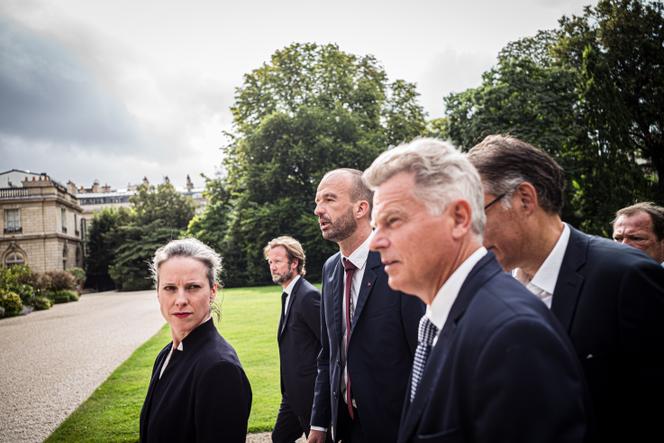


The left-wing Nouveau Front Populaire (NFP) alliance, still harboring some hopes, urged President Emmanuel Macron on the morning of Thursday, September 5, to "break the deadlock" in France's Assemblée Nationale after 60 days of waiting for a new prime minister. They called on him to appoint their candidate Lucie Castets to the position. It was yet another plea to fall on deaf ears.
Not long after, Michel Barnier, a member of the right-wing Les Républicains (LR) party, was named prime minister by Macron. New press releases were immediately released from various parties in the alliance. They were unanimous in promising to fight the new government.
Like its other NFP partners, the Socialists announced in a press release that it would reject Barnier, arguing he "has neither political legitimacy nor republican legitimacy." Socialist leader Olivier Faure deplored a "democratic denial brought to its apogee" with the appointment of "a prime minister from the party that came fourth and didn't even take part in the republican front [against the Rassemblement National]," when various came together to block the far-right Rassemblement National (RN) from gaining a majority in the Assemblée Nationale. "We are entering a crisis of regime," he concluded.
On YouTube, radical left La France Insoumise (LFI) founder Jean-Luc Mélenchon was equally definitive. "The election has been stolen from the French. The message was denied," he raged. The NFP came out on top during the parliamentary elections but without an outright majority.
Communist leader Fabien Roussel struck a similar tone. The choice of the right-wing former European commissioner, he said, is "an insult to the French people who aspire to change." Marine Tondelier, leader of the Greens, called it a "real scandal."
Former Socialist president François Hollande said "it's almost certain" that if Barnier was able to be appointed by Macron, "it's because the Rassemblement National [RN] gave a form of quitus." He promised the new head of government would have to "explain himself" to the Assemblée Nationale.
As for NFP's prime ministerial candidate Lucie Castets, she told Mediapart that Barnier would be a prime minister with "reactionary ideas." The senior civil servant referred in particular to Barnier's opposition, then a young 30-year-old MP, to the decriminalization of homosexuality in 1981. Mélenchon had immediately denounced his position.
With Barnier taking residence in the prime minister's office, the NFP is now free to examine its own conscience, and wonder whether it missed a trick by not giving more support to the candidacy of former Socialist Bernard Cazeneuve, long tipped to return the post. Internal opponents to Faure were quick to express that regret. Nicolas Mayer-Rossignol, the party's deputy leader, who argued in favor of Cazeneuve's appointment, said that the left, and in particular the Socialists, had "not behaved responsibly" and had "failed in its culture of government" by not seeking "all possible compromises."
You have 40.37% of this article left to read. The rest is for subscribers only.
